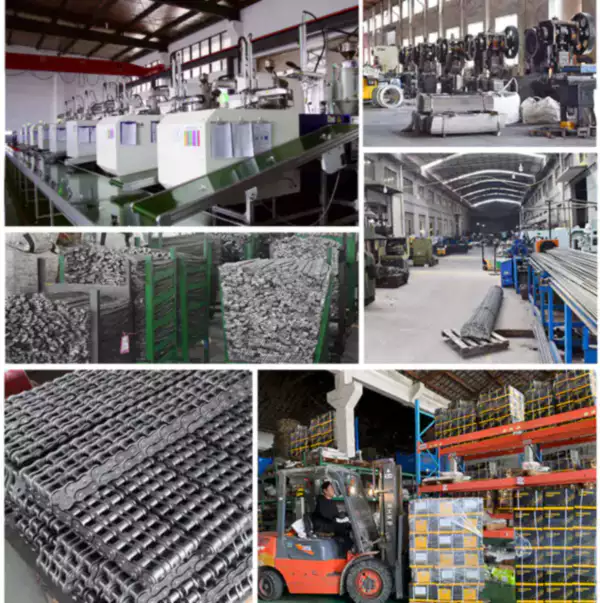Introduction
Gripper chains play a crucial role in various industries, providing a reliable means of handling and transporting materials. However, it is important to understand the differences between domestic and international gripper chain standards to ensure optimal performance and compatibility. In this article, we will explore the distinctions between these two standards and their implications for different applications.
Differences Between Domestic and International Gripper Chain Standards
1. Design and Manufacturing Specifications
Domestic gripper chain standards often adhere to specific design and manufacturing specifications set by local regulatory bodies. These standards ensure that the chains meet the required quality and safety standards for domestic use. On the other hand, international gripper chain standards may vary depending on the country of origin and the specific industry requirements.

2. Material Composition
Domestic gripper chains are commonly manufactured using locally sourced materials, which may differ from international standards. The choice of materials can impact the chain's strength, durability, and resistance to environmental factors. International gripper chains, on the other hand, may be manufactured using materials that comply with global industry standards.

3. Load Capacity and Performance
The load capacity and performance of gripper chains can vary between domestic and international standards. Domestic gripper chains are typically designed to meet the specific load requirements of the local industry. International gripper chains, on the other hand, may have standardized load capacities that cater to a broader range of applications.

4. Certification and Compliance
Domestic gripper chains often need to undergo certification processes to ensure compliance with local regulations and industry standards. These certifications provide reassurance to customers regarding the quality and reliability of the chains. International gripper chains may also require certifications, but the specific requirements may vary depending on the destination market and industry.

5. Pricing and Availability
Domestic gripper chains are generally more readily available within the local market, which can streamline procurement processes and reduce lead times. However, this availability may come at a higher price compared to international gripper chains, which might benefit from economies of scale and global sourcing.
Gripper Chains Purchasing Guide
| Factors to Consider | Domestic Gripper Chains | International Gripper Chains |
|---|---|---|
| Design and Manufacturing Specifications | Specific to local industry standards | May vary depending on country and industry |
| Material Composition | Locally sourced materials | Compliance with global industry standards |
| Load Capacity and Performance | Meets local industry requirements | Standardized capacities for broader applications |
| Certification and Compliance | Compliance with local regulations | Varies depending on destination and industry |
| Pricing and Availability | Readily available at a potentially higher price | Economies of scale and global sourcing |
Sprockets for Gripper Chains
Sprockets are vital components that work in tandem with gripper chains, ensuring smooth and efficient operation. The interplay between gripper chains and sprockets is essential for maintaining the integrity of the system. Gripper chains with their unique features require specially designed sprockets to ensure optimal performance and longevity.

Our company recognizes the importance of providing compatible sprockets for gripper chains. We offer a wide range of sprockets specifically designed for different types of gripper chains. Our sprockets are manufactured using high-quality materials and precise engineering to ensure perfect compatibility and optimal performance.
Our Advantages
- 1. Extensive experience in gripper chain manufacturing.
- 2. State-of-the-art facilities for precise chain production.
- 3. Comprehensive understanding of industry requirements.
- 4. Commitment to quality and adherence to international standards.
- 5. Customization options to meet specific customer needs.

Q&A
Q: Are domestic gripper chains interchangeable with international gripper chains?
A: Interchangeability depends on the specific dimensions, design, and compatibility of the chains. It is important to consult the manufacturer or supplier to ensure compatibility between domestic and international gripper chains.
Q: What are the key factors to consider when selecting gripper chains?
A: Key factors include load capacity, material composition, environmental conditions, chain dimensions, and compatibility with the application. These factors will determine the optimal gripper chain for a specific use case.
Q: Can gripper chains be repaired or should they be replaced entirely?
A: The decision to repair or replace gripper chains depends on the extent of damage, the cost of repair, and the overall condition of the chain. In some cases, minor repairs may be possible, but significant damage may require complete replacement to ensure safety and functionality.
Edited by Zqq.
